- Become A Member
- Remember Me Forgot Password?
- CANCEL Login

Association of Writers & Writing Programs
- Writing Programs & Pedagogy
- Community & Calendar
- Magazine & Media
- AWP Conference
- Writers' Conferences & Centers
- Guide to Writing Programs

- Advice Articles
- Campus Visit Video Series
Seattle Pacific University
Washington, united states.
The low-residency MFA at SPU is a creative writing program for apprentice writers--both Christians and those of other traditions--who not only want to pursue accomplishment in the craft of writing but also place their work within the larger context of writers of faith. The spiritual dimension of this program is not intended to produce didactic, sectarian, or sentimental literature. Nor is this MFA intended to produce writers of "Christian fiction." Far from it.
This program seeks to extend the tradition of spiritual writing in which the highest levels of art, an open-eyed exploration of human experience, and a respect for transcendent mystery are all held in a proper balance. Our models are Isaak of Syria and Dante, the Pearl poet and Sor Juana de la Cruz, George Herbert and John Donne, Gerard Manley Hopkins and Fyodor Dostoevsky, T.S. Eliot and W.H.Auden, Flannery. O'Connor and Alexandros Papadiamantis, Walker Percy, and Annie Dillard.
We believe that our program will appeal to writers for whom matters of faith are central. We also intend to cultivate reading and writing as spiritual disciplines. We are convinced that writers flourish best when they engage in a sustained dialogue with the great literature that has gone before them. Therefore, our program maintains a strong emphasis on reading classic works from the Judeo-Christian tradition and responding to them in a series of critical papers.
What distinguishes our program from other MFA programs, then, is its focus on the relationship between literature and faith, its integration of the spiritual disciplines, and the reading of literary classics of the Judeo-Christian tradition in the curriculum.

Contact Information
Low-Residency MFA 3307 Third Ave W, Suite 109 Seattle Washington, United States 98119 Phone: (206) 281-2727 Email: [email protected] http://spu.edu/mfa
Bachelor of Arts in Creative Writing +
Courses in English give students the opportunity to read a rich variety of excellent literature and to improve their own writing and thinking. Literature courses show how language enables us to explore and shape our views of God, humanity, and the earth; writing courses stress writing as a process of communication with readers and as an exploration of one's own ideas and emotions.
Courses in English also allow students to discuss the fundamental questions of human life and meaning, as well as to cultivate an appreciation of individual and cultural diversity. An English major prepares students to enter professions such as the ministry, law, social work, or medicine; to work in a variety of businesses and governmental agencies; to teach in elementary or secondary schools; to pursue graduate study in English or the humanities; and generally to enter life with an appreciation for God's gifts of language and literature.
Master of Fine Arts in Creative Writing +
Graduate program director.
The low-residency MFA at SPU is a creative writing program for apprentice writers--both Christians and those of other traditions--who not only want to pursue excellence in the craft of writing but also place their work within the larger context of the Judeo-Christian tradition of faith. The spiritual dimension of this program is not intended to produce didactic, sectarian, or sentimental literature. Nor is this MFA intended to produce writers of "Christian fiction." Far from it.
This program seeks to extend the tradition of Christian writing in which the highest levels of art, an open-eyed exploration of human experience, and a respect for transcendent mystery are all held in a proper balance. Our models are Augustine and Dante, the Pearl poet and Sor Juana de la Cruz, George Herbert and John Milton, Gerard Manley Hopkins and Fyodor Dostoevsky, T.S. Eliot and Flannery O'Connor, Walker Percy, and Annie Dillard.
Robert Clark
Clark's most recent works are his nonfiction book Dark Water: Flood and Redemption in the City of Masterpieces and the novel Lives of the Artists. His other novels include Love Among the Ruins, Mr. White's Confession, and In the Deep Midwinter. He is also the author of a spiritual memoir, My Grandfather's House: A Genealogy of Doubt and Faith.
http://www.robertclark.us.com/
Lauren Winner
Winner is the author of numerous nonfiction books, including Girl Meets God, Mudhouse Sabbath, and her recent study A Cheerful & Comfortable Faith: Anglican Religious Practice in the Elite Households of Eighteenth-Century Virginia.
https://www.harpercollins.com/author/cr-105187/lauren-f-winner/
David McGlynn
David McGlynn is the author of three books – One Day You'll Thank Me: Lessons From an Unexpected Fatherhood, A Door in the Ocean, and The End of the Straight and Narrow, all published by Counterpoint Press.
http://www.davidmcglynnbooks.com/
Gina Ochsner
Gina Ochsner is the acclaimed author of the short story collection The Necessary Grace to Fall, which received the Flannery O'Connor Award for Short Fiction, and the story collection People I Wanted to Be. Both books received the Oregon Book Award. Her novel entitled The Russian Dreambook of Colour and Flight received the Grub Street Book Prize in 2011, and was long listed for the Orange Prize in 2010. Her most recent novel is titled The Hidden Letters of Velta B. Ochsner has been awarded a John L. Simon Guggenheim grant and a grant from the National Endowment of Arts. Her stories have appeared in The New Yorker, Tin House, Glimmer Train, and Kenyon Review.
https://www.ginaochsner.com/
Mischa Willett
Mischa Willett is the author of The Elegy Beta (Mockingbird 2020) and Phases (Cascade, 2017), which was listed among the Best Books of 2017 by the Washington Independent Review of Books. Also a scholar of Romantic aesthetics, Willett serves as editor of the poems of Phillip James Bailey, and publishes research on Coleridge, Wordsworth, and Shelley.
His poems, academic articles, essays, and translations appear in journals such as Chronicle of Higher Education, The Gospel Coalition, Victorian Literature and Culture, Rio Grande Review, The Cresset, Comment Magazine and elsewhere.
https://www.mischawillett.com/
Jennifer Maier
Jennifer Maier is a professor of poetry and modern literature, as well as Writer in Residence, at Seattle Pacific University, where she also co-founded and directs the English Department's Rome Study Abroad Program. From 2007-2018 she served as associate editor of the arts quarterly Image. Her work has appeared in Poetry, Plume, The Gettysburg Review, American Poet, New Letters, and elsewhere. Her first book, Dark Alphabet (Southern Illinois UP), was named on of the Ten Remarkable Books of 2006 by the Academy of American Poets and was shortlisted for the 2008 Poets' Prize; a second, Now, Now, was published in 2013 from The University of Pittsburgh Press. Her latest collection The Occupant, is expected in 2021 from The University of Pittsburgh Press.
https://www.jennifermaier.net/about
Bryan Bliss
Bryan Bliss is both a writer and a theologian. His books include Thoughts and Prayers, Meet Me Here, Parking at the End Times, and We’ll Fly Away, which was longlisted for the 2018 National Book Award. He’s also written a profound mediation on the unshakeable love of God, Bad Things, Good People, and God: A Guide for Teens.
https://www.bryanbliss.com/
Publications & Presses +
Visiting writers program +.
Uwem Akpan, Jericho Brown, David James Duncan, Carolyn Forché, Dana Gioia, Patricia Hampl, Pam Houston, Bret Lott, Thomas Lynch, Chigozie Obioma, Marilyn Nelson, Jacqueline Osherow, Jamie Quatro, Richard Rodriguez, Stephanie Powell Watts, Melissa Range, Joanna Eleftheriou, Pam Houston, Scott Russell Sanders, Tim Seibles, Rodger Kamenetz, Moira Crone, Richard Chess, David McGlynn, Melissa Range, Joanna Eleftheriou, Mark Burrows, Christopher Merrill, Jessica Jacobs, and others (two-three per residency).
Share this page:
- Terms of Use
- Privacy Policy
Copyright © 2024 by AWP. All rights reserved.

- — College Advice
- — Plan a visit
- — Explore Seattle
- — Life at SPU
- — Become a Student
- — Alumni stories
- — Campus News
- — Class Notes
- — In Memoriam
- — Response magazine
- — SPU Voices Podcast
- — Connections Alumni Newsletter
- — In the Loop Parents Newsletter
- — SPU in the News
- — Manage your subscription
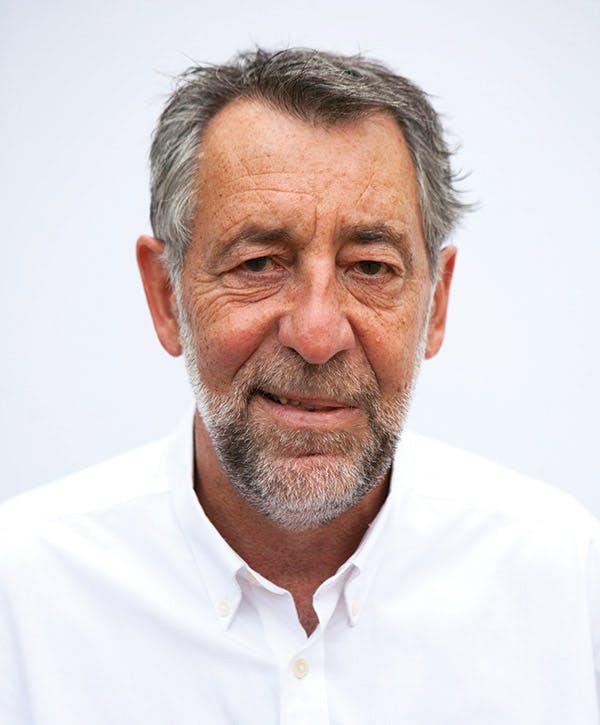
A New Chapter for MFA Program
By university communications staff, november 2016.

Since 2015, he has served as a faculty mentor in the low-residency MFA program. He has authored eight poetry collections, a collection of translations of Christian mystics, a spiritual memoir, a book-length essay on suffering, and co-edited an anthology of poetry, fiction, and nonfiction. His poems and essays have appeared in The Atlantic Monthly, The New Republic, Poetry, Image, Paris Review, and many other journals. Cairns’ work has been included in multiple editions of Best American Spiritual Writing. He is a regular blogger for the religion section of The Huffington Post and contributes a podcast for Ancient Faith Radio.
“Dr. Cairns is a gift to the MFA and to SPU,” says Debra Sequeira , dean of the Division of Arts and Humanities in the College of Arts and Sciences. “He has a wealth of experience directing graduate creative writing programs and his own vast collection of literary works reveals a life of grace, passion, irony, religious depth, and an embrace of the mystery of faith.”
SPU’s unique program remains the only such creative writing program in the nation that focuses particularly on the intersection between the arts and faith.
Learn more at spu.edu/mfa .
Related articles
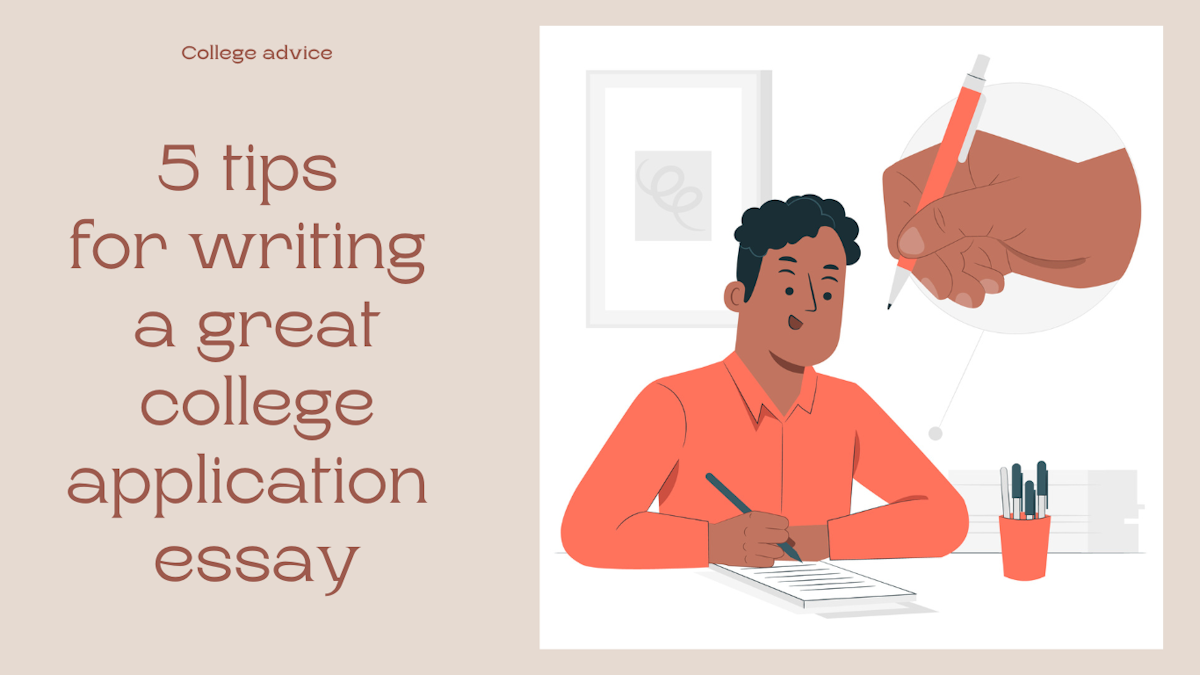

Good Letters
My own commencement, part 1: the birth of an mfa, by gregory wolfe.

Once upon a time—well, seventeen years ago, to be exact—I was contacted by Mark Walhout, the chair of the English department at Seattle Pacific University to consult with him regarding the possibility of SPU starting an MFA program in creative writing. He felt that as editor of Image I had the right sort of contacts to recruit faculty—and perhaps a bit of credibility with the literary community—to help kick-start the process.
“How odd that you called about that,” I said. “One of the long-term dreams among the Image editors has been to get involved with the founding of an MFA program.”
“Well,” he responded, “how would you like to come out here and start the program for us?”
I’d like to say it was as simple as that but these things take time and lots of elbow grease. We did indeed come to SPU but we still had a long road ahead of us. There was the matter of settling down, establishing the journal in a new location, and launching an extensive research process for putting together an MFA program proposal. A graduate writing program that sought to educate students in the light of the rich theological and literary heritage of the Christian faith had never been attempted before and we knew it would be looked upon with close scrutiny and even skepticism.
What might such a program be all about, people wondered? Would it be a factory for churning out writers of “Christian fiction”: Amish romances, apocalyptic thrillers about the Rapture in which everyone but registered Republicans would be left behind? Would it produce writers who were simply preachers in disguise but who happened to know how to consult the Oxford English Dictionary for a few fancy words?
It helped that Image journal had established a track record for preferring a much different vision of literary art, one that took its cues from classic authors from Augustine and Dante to Flannery O’Connor and Annie Dillard—artists whose works didn’t treat religious faith as a series of abstract propositions but as a way of seeing the world, one that the writer had to embody in the concrete particulars of everyday life.
We were determined that there should be no doubts about our commitment to excellence. Another founding principle of the program was that faith is not a shortcut in the arduous process of mastering craft. To establish our standards, we studied the curricula of the best, most rigorous low-residency programs and promptly made our own requirements even more demanding.
Like all MFA programs, ours would be grounded in the process of mastering craft, but that effort would be leavened by a deep concern for vision—in other words we would focus on form but also content—so that our graduates would be reminded that writing is not just verbal pyrotechnics but a passionate act of discovery, a hunger for the rich, often elusive truths about the sorrows and joys of the human condition.
Writing words under the shadow of the Word himself, our students would always know there was something larger in the room than their own ego—and, knowing that, they would be freed to face the tasks ahead of them with a lighter spirit.
And so eleven years ago, Robert Clark, Leslie Leyland Fields, Paul Mariani, and I sat down with a dozen apprentice writers to embark on an adventure in using human words in light of the divine, creative Word that spoke the world into existence.
As the years unfolded several things became abundantly clear: the bonding between students at each residency was fast and strong, like some kind of super-nano-glue created at jet propulsion laboratories. Also, the need to balance the intense labor of the residencies with, well, intense play became evident. And so a poetry competition that originally began with the challenge to write a haiku incorporating the phase “crab artichoke dip” grew into full-blown satirical skits of such…dare I say boldness? that they could only be broadcast on a premium cable channel.
This made me very, very happy. Only those who live out an incarnational faith can understand how closely interwoven the sacred and profane really are. And that reverent irreverence is precisely what has given this program its entirely bearable lightness of being.
Once, when officials from the national Association of Writers and Writing Programs came to a residency to prepare a thorough assessment of our program, the executive director turned to me at the lunch table and said: “You’re putting Prozac in the water, right?”
“What do you mean?”
“Well,” he replied, “I’ve never encountered a happier MFA program in my life and I’ve done dozens of site visits.”
I don’t want to suggest that it’s been all unicorns and rainbows. This is an arduous program and it has to be undertaken in the midst of life’s craziness. But when things get tough, students and mentors alike have come together time and again to support and help each other.
With well over a hundred graduates—many of whom have gone on to publish books, as well as in dozens of magazines, journals, and websites, not to mention winning prizes and competitions, landing jobs in universities and a host of other places—we can sit back and marvel at how far we’ve come. And we’re only just getting started.
With a poet and essayist of the caliber of Scott Cairns, the SPU MFA has a new director who will take the program to even greater heights.
My involvement with this program has been one of the fulfilling experiences of my life. To quote William Butler Yeats, this program has given me joy right down to the “deep heart’s core.”
The decision to let it go is also one of the hardest things I’ve ever done. I’m an accumulator, not a relinquisher. The Lord has blessed and cursed me with being good at more than one thing and the problem is that building institutions—one thing I’m pretty good at—tends to make it very difficult to actually get much writing done. I hope that as I have attempted to nurture and support your writing vocations, you’ll give me your blessing to take up some long-delayed book projects of my own.
There is also Image , who, using my wife’s colorful metaphor, has turned out to be a high-maintenance mistress who starts calling the home number and demanding that I take her to dinner and a show. In short, a journal is harder to sustain than a graduate program, believe me, so say a prayer for Image , which was the midwife at the birth of this program.
Needless to say, I have a long list of people I’m grateful to, including all the program coordinators and faculty as well as the students and alumni. You sustain me in countless ways.
Continued here.
Image depends on its subscribers and supporters. Join the conversation and make a contribution today.
+ Click here to make a donation.
+ Click here to subscribe to Image .
The Image archive is supported in part by an award from the National Endowment for the Arts.
Tags: art and faith craft education Gregory Wolfe Image Journal MFA the writing life writers writing writing life
Written by: Gregory Wolfe
Gregory Wolfe, the founder and editor of Image —one of America’s leading quarterly journals—is Senior Fellow at the Institute for Catholic Thought and Culture at Seattle University. He edits a literary imprint, Slant Books, through Wipf & Stock Publishers. He served as the founding director of the Seattle Pacific University MFA in Creative Writing program. Wolfe’s books include Beauty Will Save the World, Intruding Upon the Timeless, and, most recently, The Operation of Grace. Follow him on Twitter: @Gregory_Wolfe.
Fun to get a sense of the birth and texture of the SPU MFA. I know it was a tough decision to step down, but I’m sure it will open up new fulfillments for you in other venues (like, as you mention, your own writing). Blessings on this new step.
Receive ImageUpdate, our free weekly newsletter featuring the best from Image and the world of arts & faith

How to Become a Writer in Washington with a BFA, MFA or Similar Creative Writing Degree
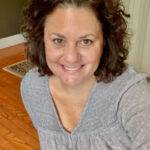
Written by Rebecca Turley
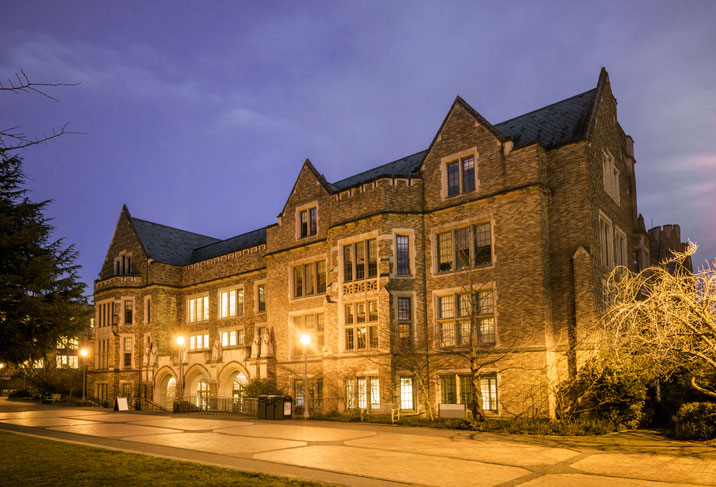
The Seattle area’s natural beauty is the stuff fairytales are made of, somehow idyllic and dreamy even when you’re stuck in traffic. If you’re a creative type, you can’t help but feel a constant rush here. Fact is, inspiration is practically handed to you on a silver platter in the Evergreen State.
Washington is where old-growth forests are blanketed with lush, emerald-green mosses… where remote coastal beaches give way to crystal clear tide pools teeming with tiny anemones and fascinating sea stars… where farm-to-table restaurants in quaint seaside towns highlight local oysters, rhubarb pie, and the freshest Dungeness crab in the Pacific Northwest… where glacier-capped mountains provide the backdrop to death-defying ski runs… and where spring snow melt creates thundering waterfalls that are always worth the hike.
Rebecca Wells wrote her New York Times bestselling novel, Divine Secrets of the Ya-Ya Sisterhood when she lived in Seattle. Kristin Hannah, bestselling author of The Nightingale (it was a New York Times bestseller for a whopping 20 weeks), lives on Bainbridge Island. And Julia Quinn, author of the bestselling Bridgerton historical novel series (which have also become a wildly popular Netflix series) creates out of her Seattle home.
Coincidence? Nah, it’s the magic of Washington State.
You’ll find plenty of space to carve out your own creative writing career in Washington. With your favorite notebook or trusty laptop in hand, you’re free to explore your creative voice in whatever big city or small town in Washington you call home. Lively writing workshops, open mic nights, critique groups, and writing events both big and small can be found from Bellingham to Everett to Yakima and beyond. They provide writers like you with ample opportunities to elevate your craft and dive headfirst into the state’s lively writing community.
And when you’re ready to make the leap and turn your passion for writing into a real career, Washington is also where you’ll find a fantastic selection of world class creative writing degree programs.
Washington Poet Laureate Rena Priest Draws Inspiration From Her Indigenous Heritage and the Tribal Lands of the Pacific Northwest
The drunken monkey of truth/says, “It’s too late for you/to never tell me you love me.”/But I’ve already tasted in your kiss/the pixels of lightning/you keep in your lips. ~ “Canadian Tuxedo,” Sublime Subliminal
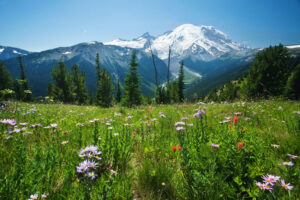
Her title as Poet Laureate is an important one (she’ll hold this honored position until March 31, 2023), as she’ll serve as the statewide ambassador for poetry during this time.
During her term as Poet Laureate, she’ll produce new work while also working to inspire and connect with readers and writers across the state through events and programs. While her plans aren’t yet formalized, she does plan to focus her work on the importance of preserving the tribal lands of Washington and promoting healthier ecosystems. As a longtime resident, she has an intimate connection with Washington and its land.
This Bellingham-based poet has already authored two books of poetry. Patriarchy Blues , her literary debut, received the 2018 American Book Award. Her most recent work is Sublime Subliminal . She holds a BA in English from Western Washington University and an MFA in Writing from Sarah Lawrence College.
Priest’s poetry offers unique observations about complex social issues, yet often delivers them with a sharp wit and crafty imagery. Sublime Subliminal is known for its playful, celebratory use of language. She says that her craft is always rooted in joy and that being able to address even darker topics in her work is a freeing, cathartic process. Readers will also find Priest expressing her Indigenous voice and exploring her culture and heritage throughout this book.
Creative Writing Classes, Courses, and Workshops in Washington Can Prepare You for a Creative Writing Degree
There’s a good chance you’re a quirky, forward-thinking, nature-loving wordsmith who never passes up a good opportunity to flex your creative muscle.
Maybe you and your favorite journal can be found biking to your favorite outdoor spot for a little solitude and quiet time. Perhaps you can be found tapping away at your keyboard as you wait on your order at your favorite corner coffee shop. Or maybe your idea of the perfect creative day involves a rigorous hike followed by a writing session in the shade of a towering tree.
But Washington is also home to ample opportunities to move beyond your comfort zone and get involved in workshops, classes, and other meet-ups tailor made for creatives. You’ll fall in love with the camaraderie, get inspired by your fellow writers, and find new ways to hone your craft.
Cascadia Poetics Lab in Seattle is a vibrant community of poets that gathers for workshops, festivals, and events. Keep in touch with the latest happenings through their weekly newsletter, participate in online workshops, and make time to attend the annual Cascadia Poetry Festival.
Hedgebrook is billed as a global community of women writers that connects through books, poetry, plays, films, and music. This literary nonprofit, which is based in Freeland, provides women writers with unmatched opportunities to elevate their writing through writing residencies, Radical Craft Retreats, and salons at their picturesque retreat on Whidbey Island. Since 1988, Hedgebrook has welcomed more than 2,000 writers to their cottages.
The Pacific Northwest Writer’s Association is a member organization that helps writers develop their talent through education, access to the publishing industry, and through events and programs with their community of writers. PNWA members can often be found writing and attending special events at the Cottage in Issaquah – a charming retreat that’s perfect for creating. PNWA also hosts regular workshops through the year. Some of their workshops include a Write Your Story fiction course, The Art of the Personal Essay nonfiction course, Poetry Workshop and Discussion: Breaking Down the Boundaries, and Make $$ Writing marketing course.
The Write on the Sound Writers’ Conference is a regional favorite. Based in Edmonds, this conference offers a variety of sessions, workshops, and panel discussions for writers of fiction, nonfiction, and poetry. Writers here also have the opportunity to have their poetry or manuscript critiqued by a professional author or writing instructor!
No need to get out of those comfy pajamas to participate in the writing community. The state’s literary publications serve as a prime setting for reading other writers’ works and getting yours published.
Willow Springs is a biannual journal that’s been publishing contemporary fiction, nonfiction, and poetry for more than 45 years. Produced by the MFA Creative Writing program of Eastern Washington University, this journal accepts nonfiction submissions year-round and fiction and poetry submissions between September 1 and May 31.
Copper Canyon Press is a big name in indie publishing for poetry. Based in Port Townsend, Copper Canyon Press has been publishing groundbreaking poetry for 50 years. Get inspired by other poets and then forge ahead and submit your own original work for a chance at being published.
Crab Creek Review is a Seattle-based literary journal that’s been proudly introducing readers to the best emerging and established writers of poetry, fiction, and creative nonfiction. They also offer the Crab Creek Review Poetry Prize – a chance to get your poetry published and win $500!
Writing Colleges in Washington Offering Bachelor’s and Master’s Degrees in Creative Writing Provide a Path to Becoming a Writer
There may be nothing quite as fulfilling as being able to transition your love of writing into a rewarding career. Making the leap from amateur to published pro takes a lot of work, plenty of dedication, and a solid plan that includes a creative writing degree.
Bachelor of Fine Arts (BFA), Master of Fine Arts (MFA) and other undergrad and grad degrees in creative writing are widely available, both in Washington State and beyond, and are built on a solid foundation of theory and practice. A growing number of programs are also offered in an online or low-residency format to accommodate the busy schedules of working adults.
Top programs in creative writing offer options to specialize in one genre or explore several; opportunities to work alongside accomplished instructors who are often working writers themselves; and exciting opportunities to apply what you’ve learned through real-life, hands-on learning experiences.
Bachelor of Fine Arts (BFA) and Other Bachelor’s Degrees in Creative Writing in Washington
Central washington university.
COLLEGE OF ARTS AND HUMANITIES
Accreditation: NWCCU
Degree: Bachelor – BA
Public School

- Professional and Creative Writing
Eastern Washington University
COLLEGE OF ARTS, HUMANITIES AND SOCIAL SCIENCES

- English-Creative Writing option
Pacific Lutheran University
COLLEGE OF HUMANITIES, INTERDISCIPLINARY STUDIES, AND SOCIAL SCIENCES
Private School

- English-Writing emphasis
Seattle Pacific University
COLLEGE OF ARTS AND SCIENCES

- English-Creative Writing concentration
Seattle University

- English-Creative Writing specialization
University of Puget Sound
ENGLISH DEPARTMENT

- English-Creative Writing focus
University of Washington-Seattle Campus


Western Washington University
COLLEGE OF ARTS AND SOCIAL SCIENCES

- English-Creative Writing emphasis
Master of Fine Arts (MFA) and Other Master’s Degrees in Creative Writing in Washington
Degree: Master – MA
Degree: Master – MFA
- Creative Writing
- Creative Writing-Rainier Writing Workshop (Fiction, Nonfiction, Poetry)
University of Washington-Bothell Campus
SCHOOL OF INTERDISCIPLINARY ARTS AND SCIENCES
- Creative Writing and Poetics
- Creative Writing (Poetry, Prose)
COLLEGE OF HUMANITIES AND SOCIAL SCIENCES
After hiding the tool, if you would like to re-enable it, just press CTRL+U to open this window. Or, move your cursor near the tool to display it.

MFA in Creative Writing - Low Residency
Contact information.
Graduate Admission
Phone: 253-535-8570
Email: [email protected]
Pacific Lutheran University 12180 Park Avenue South Tacoma, WA 98447-0003
Speak to the Program Director
Make a phone appointment
College Links
- College of Liberal Studies
Social Media
Innovation. Challenge. Community.
What are your goals as a student and maker of literature, as an artist contributing to the conversation about the urgent matters of our time? What is the work you want to do, the work that is specific to your experience, talent, and imagination?
Now celebrating over 19 years of accomplishment, the Rainier Writing Workshop has been helping writers to answer those questions, and to generate new, even deeper questions about the writer’s aspirations.
Our MFA is an innovative three-year, four-residency program in poetry, fiction, and creative nonfiction.
Mentorships with our faculty last for a full year, ensuring a high-quality experience at a more leisurely pace – ideal for busy professionals and those who wish to take time to develop their work’s fullest potential. Combining rigor and support, each mentorship year is tailored to the participant’s goals. Our faculty are nationally known writers who are also outstanding teachers.
Connect With Us
- Request More Information
- Ask a Question
Quick Links
- Current RWW Soundings
- Visiting Writer Series
- Graduate Catalog
- RWW Facebook
- MFA Program Brochure
- MFA Program Fact Sheet
Outside Experience
Our MFA has other features that have made The Rainier Writing Workshop the Pacific Northwest’s premier low-residency MFA in creative writing. We offer a unique “Outside Experience” component that allows each participant to design an independent project that will enhance their skills and advance specific writing goals. A participant’s final thesis can contain work in multiple genres. Our yearly residencies are held on the PLU campus in magnificent summer weather, in the shadow of Mount Rainier, with easy access to Seattle’s urban culture. We are highly selective, and our alumni have generated a substantial record of success in publication, teaching, and other literary achievements.
The Rainier Writing Workshop is a community of talented, mature, and independent writers, working in an atmosphere in which each writer’s work deepens and flourishes.
“You have achieved balance between mutual support and self-reliance – it’s unusual, and exactly right.”
“Who knew how magical and wonderful this program could be? I feel like I belong and that I’ve found a tribe I belong with, like I matter, and that I can be a writer.”
The Rainier Writing Workshop
Read more at RWW Soundings
Learn more about our mentors and faculty
Start your application for the Rainier Writing Workshop
Quick links
- Make a Gift
- Directories
Master of Fine Arts in Creative Writing
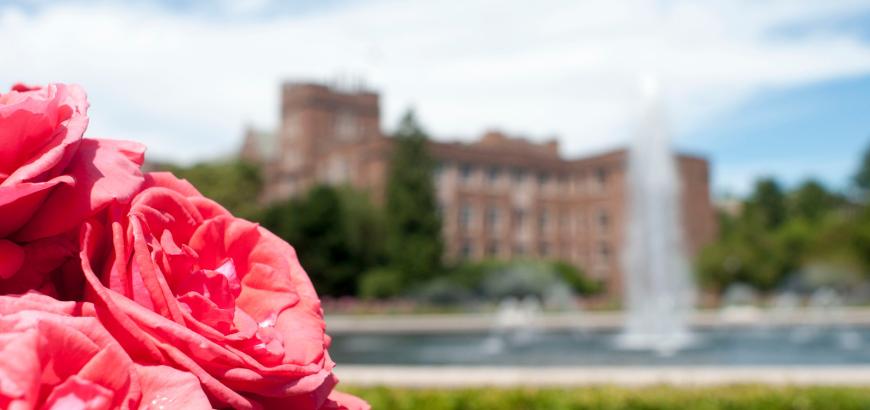
Program Overview
The Master of Fine Arts in Creative Writing is a two year program offering a degree in either Poetry or Prose, and is a part of the English Department's Creative Writing Program. Founded in 1947 by Theodore Roethke, the Creative Writing Program's tradition of transformative workshops continues with our current faculty: David Bosworth , David Crouse , Rae Paris , and Maya Sonenberg (Prose), and Linda Bierds , Andrew Feld , Richard Kenney, and Pimone Triplett (Poetry). They include among their many honors fellowships from the MacArthur Foundation, the Guggenheim Foundation, and the National Endowment for the Arts. The list of our alumni publications represents a significant chapter in the history of American literature. The program has been ranked among the top ten in the country.
Students participate in writing workshops in prose and poetry, and undertake coursework in literary periods and types, and critical theory. MFA candidates also present a Creative Manuscript (minimum 30 poems,100 pages of 5 short stories and/or personal essays, or 150 pages of a novel or book-length essay), a Critical Essay (20-30 pages, addressing the student's relationship to his or her reading based on the student's own writerly concerns and studies), and an oral presentation (a discussion with and/or questions from the candidate's thesis committee on the creative manuscript, critical essay, and/or the writing process and which may include a reading from the candidate's Creative Manuscript).
The program admits only ten to twelve students each year. The relatively small size of our program (20-25 students) allows for close associations to develop among students and faculty. The first year is devoted to participation in workshops and literary seminars, and the second year allows for concentrated work on a creative manuscript and critical essay under the supervision of one of our regular faculty.
Students are funded through Teaching Assistantships, Fellowships, and a long-standing relationship with the Amazon Literary Partnership.
Students also enjoy Seattle's lively literary and arts scene. Seattle is home to numerous reading series, the Seattle International Film Festival, and many highly-acclaimed theater companies. Surrounded by spectacular scenery, Seattle is minutes away from hiking, skiing, and boating.
Learn more about UW's Creative Writing Program .
Application Information
Application materials are due January 2 (or the first business day after January 1 st ). Initial offers of admission are usually made by mid-March.
- How to Apply
- Application Checklist
Funding Opportunities
We offer a funding package to all admitted MFA students for two academic years. Learn more about the funding package and other funding opportunities here: MFA Funding and Support .
MFA Degree Requirements & Program Guide
The MFA is designed to be completed within six full-time quarters (two academic years). MFA students can refer to the MFA Degree Requirements and MFA Program Guide .
Land Acknowledgement
The Creative Writing Program acknowledges that the University of Washington, like all of our businesses, institutions and our lives, exists on Indigenous land. Such land acknowledgements are necessary as we push for justice and liberation in institutions and a broader society that continues to live out the settler colonial legacies of land theft, genocide, and enslavement. This is Duwamish territory, and we are grateful to be here.
Departmental Commitment to Diversity, Equity and Justice
The UW English Department aims to help students become more incisive thinkers, effective communicators, and imaginative writers by acknowledging that language and its use are powerful and hold the potential to empower individuals and communities; to provide the means to engage in meaningful conversation and collaboration across differences and with those with whom we disagree; and to offer methods for exploring, understanding, problem solving, and responding to the many pressing collective issues we face in our world--skills that align with and support the University of Washington’s mission to educate “a diverse student body to become responsible global citizens and future leaders through a challenging learning environment informed by cutting-edge scholarship.”
As a department, we begin with the conviction that language and texts play crucial roles in the constitution of cultures and communities, past, present, and future. Our disciplinary commitments to the study of English (its history, multiplicity, and development; its literary and artistic uses; and its global role in shaping and changing cultures) require of us a willingness to engage openly and critically with questions of power and difference. As such, in our teaching, service, and scholarship we frequently initiate and encourage conversations about topics such as race and racism, immigration, gender, sexuality, class, indigeneity, and colonialisms. These topics are fundamental to the inquiry we pursue. We are proud of this fact, and we are committed to creating an environment in which our faculty and students can do so confidently and securely, knowing that they have the backing of the department.
Towards that aim, we value the inherent dignity and uniqueness of individuals and communities. We acknowledge that our university is located on the shared lands and waters of the Coast Salish peoples. We aspire to be a place where human rights are respected and where any of us can seek support. This includes people of all ethnicities, faiths, gender identities, national and indigenous origins, political views, and citizenship status; nontheists; LGBQTIA+; those with disabilities; veterans; and anyone who has been targeted, abused, or disenfranchised.
English Department Diversity Plan
The English department seeks to promote inclusion, diversity, and equity, especially racial equity, by recruiting, retaining, and supporting a diverse population of faculty, students, and staff in ways that counter ongoing legacies of systemic inequity and settler colonialism, and their organizing epistemologies.
The University of Washington acknowledges the Coast Salish people of this land, the land which touches the shared waters of all tribes and bands within the Suquamish, Tulalip, and Muckleshoot nations. The Department's promotion of diversity, equity, and inclusion values endeavors that build on this recognition as a means of transforming our research, pedagogy, and/or service.
Read more about the UW English Department's commitment to diversity, equity, and justice .
Contact an advisor
- For questions about the MFA program, please contact [email protected]
- Visit our FAQ page
- Meet our Graduate Staff
- Newsletter
- June 3 NCAA champions! Women's rowing 4+ wins
- May 31 Your grandma’s action movie
- May 31 Surfin’ USA
- May 30 A not-so-poetic ending
- May 29 Queer joy at SPU’s [Redacted] Fest
- May 28 Up the bridges
- May 28 Falcon duo impresses at NCAA
- May 28 SPU women’s rowing sets course for NCAAs
- May 28 Looking forward to fall
- May 24 Talking about ‘Superheroes in the Streets’

‘It’s easier to stay’
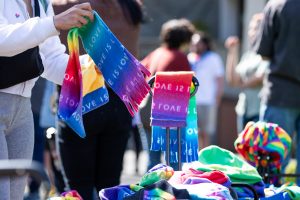
Queer joy at SPU’s [Redacted] Fest
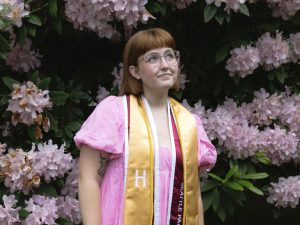
A not-so-poetic ending
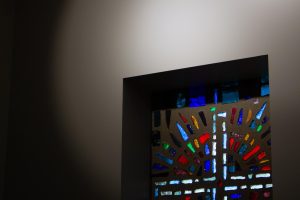
After color

Outrage over Lia Thomas’s NCAA Championship win is unjustified
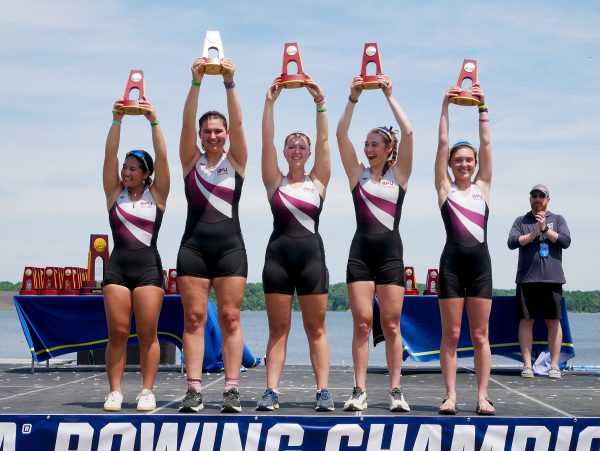
NCAA champions! Women’s rowing 4+ wins
June 3, 2024
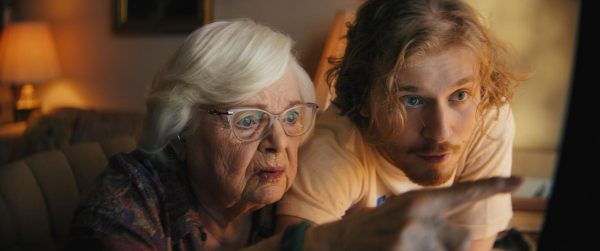
Your grandma’s action movie
May 31, 2024
Surfin’ USA
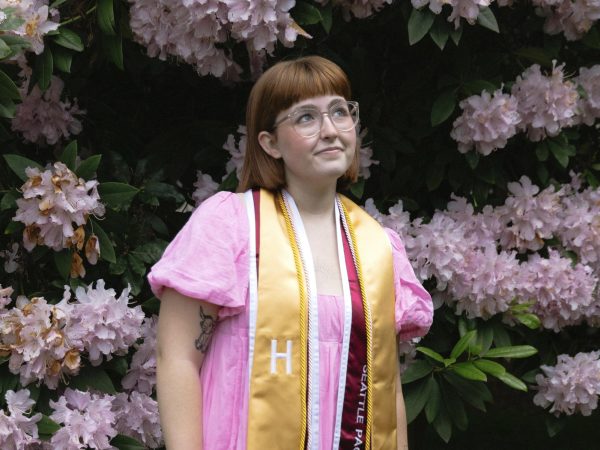
May 30, 2024
![seattle pacific university mfa creative writing Queer joy at SPU’s [Redacted] Fest](https://thefalcon.seapacmedia.com/wp-content/uploads/2024/05/04_14_23_9999_1-600x400.jpg)
May 29, 2024
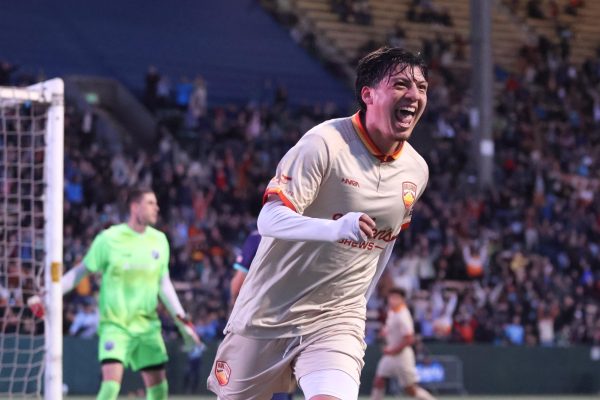
Up the bridges
May 28, 2024
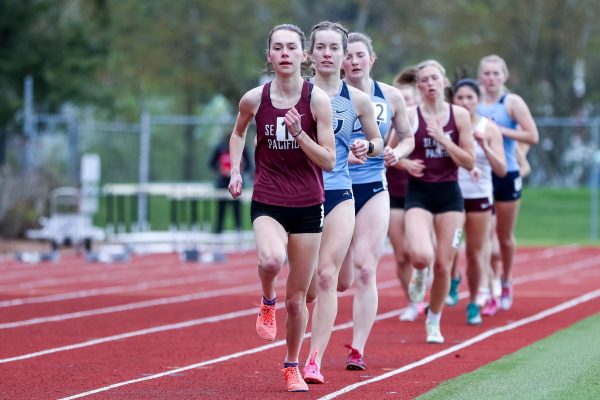
Falcon duo impresses at NCAA
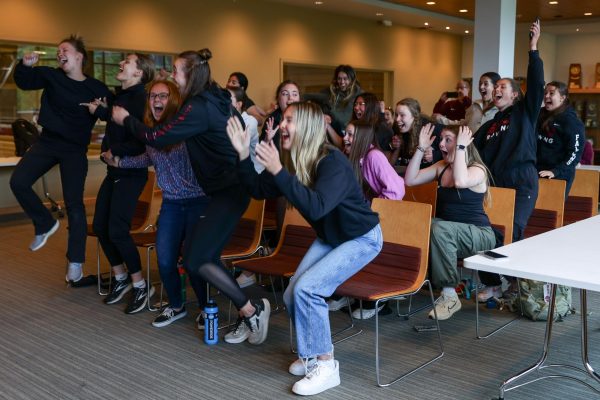
SPU women’s rowing sets course for NCAAs
- Featured Stories
SPU cuts programs, faculty cuts ties
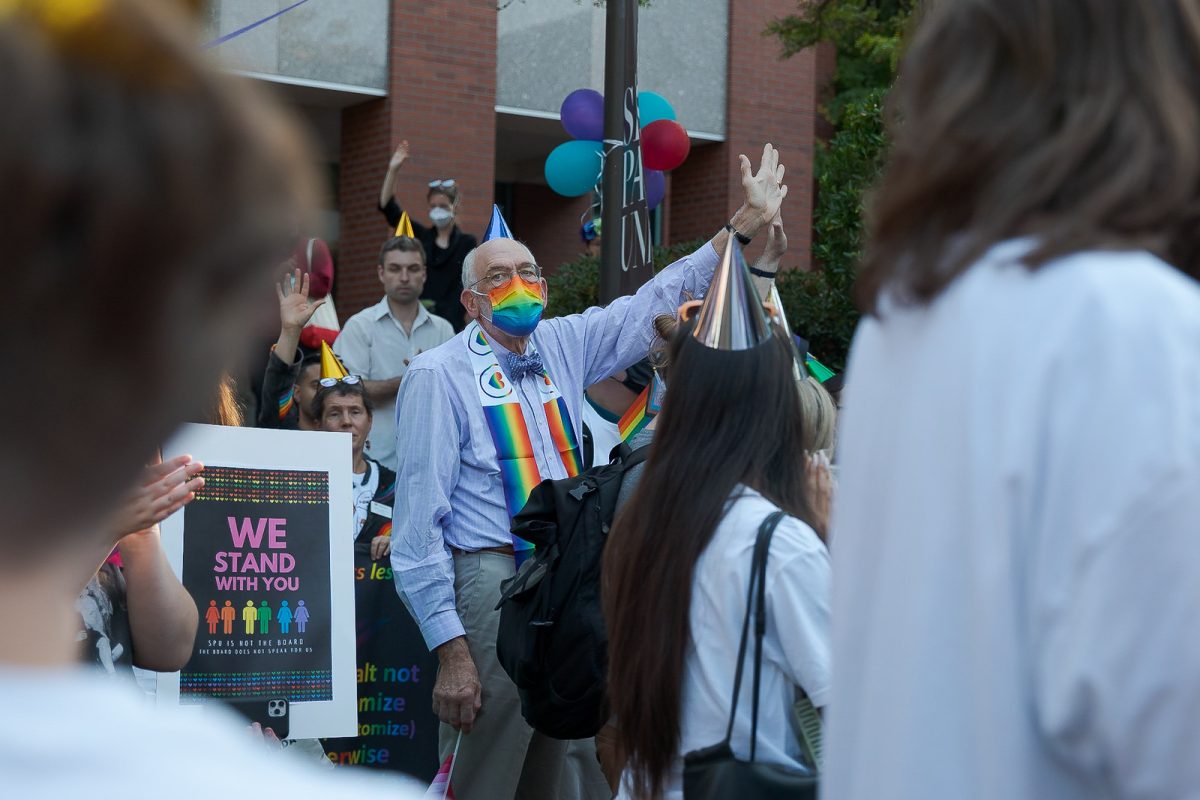
Seattle Pacific University will implement a 40% decrease in faculty and staff, a decision announced in mid-June of 2023. The university has seen a significant decrease in admissions and outside funding within the last three years. With the institution facing financial hardships, budget cuts were needed to keep the school afloat.
In August of 2023, the faculty of SPU received an email from Interim Chief Academic Officer, Les Steele, and Vice Provost for Academic Affairs, Cindy Price, detailing the department and administration cuts projected to take effect in the next two years. There will be a total of 13 programs disbanded and 63 faculty members will be leaving the university by June 2025.
For many faculty members, this announcement came as a surprise. Dr. Michelle Beauclair, department chair of the linguistics and cultural studies department, has been wrestling with grief over the announcement that her entire program will be phased out.
“Oh, we’ve been gutted,” Beauclair said. “[I’m feeling] sad and disappointed, especially for the future students to not have the opportunity to take foreign languages here.”
The linguistics and cultural studies department has disbanded most language majors and programs. Beginner courses will remain to fill students’ graduation requirements, but they will not be offered as complete majors or areas of study.
“The decision that the APP [Academic Program Prioritization] committee and others made was that we would only offer first-year language courses, so as I understand it, first-year French, first-year Spanish and first-year Mandarin taught by adjuncts,” Beauclair said.
The university will lose the programs and many faculty who teach within them. Dr. Scott Cairns, Director of SPU’s Masters of Fine Arts in creative writing, worries that the institution is losing one of its highest-grossing programs.
“I daresay [the MFA Creative Writing] was the most nationally recognized program of Seattle Pacific University,” said Cairns. “I have still not been satisfied with an explanation for why a program that I think cleared between $180,000 and $350,000 for the university in a given year [has been cut].”
Faculty are mourning the programs and the unique experiences that came alongside them for SPU students.
“Very often, MFA programs and some Ph.D. programs can be competitive to the point that students actually feel like they’re vying against one another,” Cairns said. “It was like a breath of fresh air to come into a place where my students loved each other and cared as much for one another’s success as they cared for their own; that’s not just uncommon, that’s unique.”
In fall of 2022, faculty with at least 10 years of service at SPU were offered buyout packages in preparation for the inevitable cuts. The buyouts were intended to allow employees to voluntarily leave the university with financial compensation such as severance pay or other benefits.
Dr. William Purcell, chair of the communications and journalism department, expressed that these voluntary decisions to leave came from a number of reasons, including self-preservation and prioritization of younger colleagues.
“It’s time to retire. It’s a good deal, and if I retire, maybe they will not cut one of my junior colleagues,” Purcell said. “It’s been a very droopy place to work for the last year. I’m tired of the drama. I will miss my students, I will miss my colleagues, but I will not miss the other stuff.”
Oz Nardecchia, a third-year English creative writing major, feels equal parts sorrow for Purcell’s leaving and gratitude for his time at SPU.
“Even for students who didn’t know who he was recognized his kindness,” Nardecchia said. “When I found out that Purcell was leaving, immediately it was just like disappointment at the fact that we were losing a genuinely wonderful man.”
SPU’s English department has been steadily dwindling since assistant professor of English and writing Mischa Willett started at the university six years ago.
“We have lost four positions since I’ve been here – before the cuts,” Willett said.
Willett is involuntarily leaving SPU at the end of June in 2024 and expressed both sadness and excitement.
“You know when you’re young and someone breaks up with you, and it seems like the end of the world,” Willett said. “But there is a little tingle of ‘Oh man, that means I’m free again.’ There is a sense of possibility.”
For the privacy of SPU faculty, a comprehensive list of all faculty leaving has yet to be officially released to students.
Your donation will support the student journalists of The Falcon. Your contribution will allow us to purchase equipment and cover our annual website hosting costs.
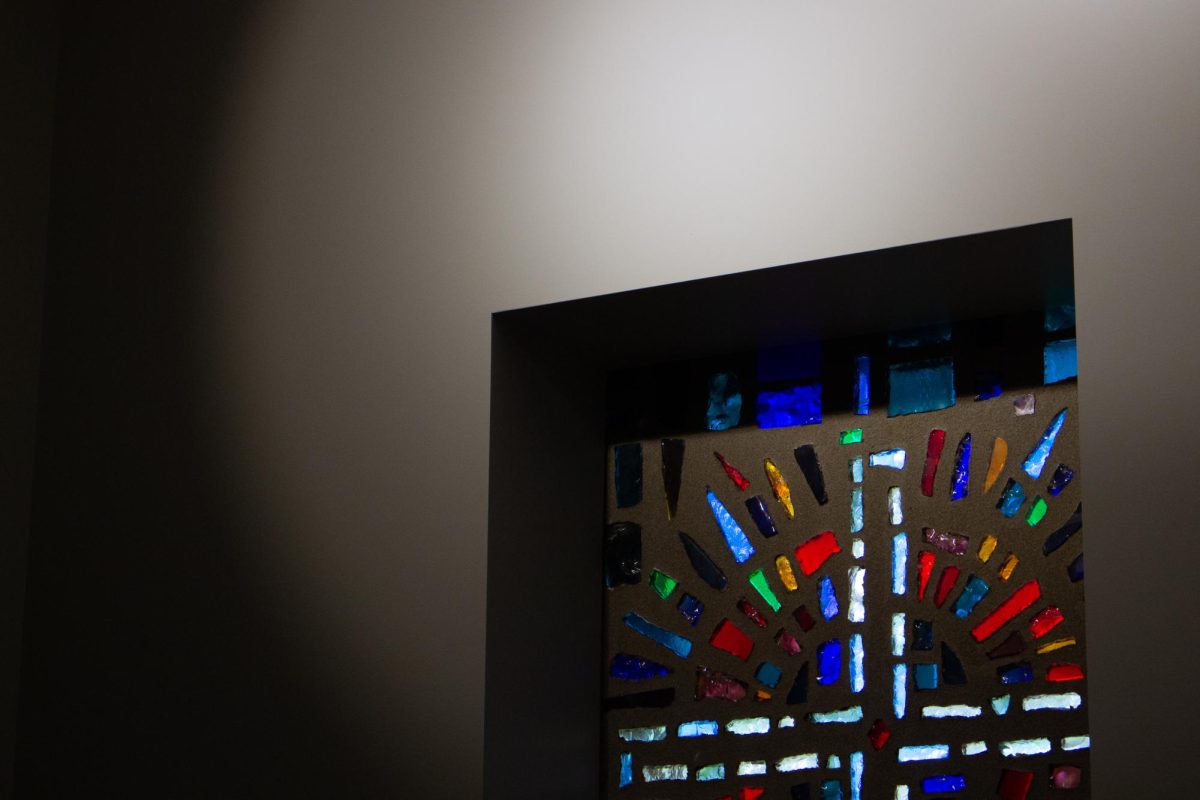
Seattle Pacific University's Student Newspaper
- About the Falcon
- Connect with The Falcon!
- Submit a letter
Comments (0)
Cancel reply
Your email address will not be published. Required fields are marked *

MFA in Creative Writing Resources
- Using the Library
The SPU Library Catalog
- MFA Alumni Books at the SPU Library
Use the SPU Library catalog search boxes on the homepage to look for titles, authors, or keywords. When you get your results, you can sort and limit to narrow down to the materials that work best for you. Use the "request" feature to have one of our books pulled for you or for a book to be sent from another library to either SPU or a Summit library near you.
You can also pull your own books at the SPU Library. If you have questions while you are in the building, ask at the Front Desk.
When working online, you can contact Librarian Liz or use the Ask a Librarian service.
--> Search using an author, title, or keywords:

--> When you get your results, you can limit and sort. In this example, the "Full Text Online" limit is chosen:

--> Click on the title for the item or version that you are interested for further options. For ebooks, there will be an "Online access" link. For items in our building, you will get a location and call number.

- << Previous: Using the Library
- Next: Articles >>
- Last Updated: Mar 8, 2024 4:01 PM
- URL: https://spu.libguides.com/MFA
Jump to navigation
- Find People
- Life at Pacific
Forest Grove, Hillsboro & Eugene Campuses Closed
Update: Pacific University’s Forest Grove, Hillsboro and Eugene campuses, and all Pacific healthcare clinics, remain closed all day Friday, Jan. 19. More Details
Faculty Biographies
- Faculty Videos
- Visiting Writers
Faculty Biographies | Master of Fine Arts in Writing
The writers who serve as faculty for the Pacific University MFA in Writing program are outstanding for both their level of national or regional literary achievements and for their teaching records and abilities. These accomplished authors share a sense of joy around their work, bringing their diverse writing styles and voices to the mix. During residencies and the guided study that follows, the MFA faculty advisor is hard at work on his or her own writing, and every exchange with a student is touched by mutual goals.
Request Info

Chris Abani is a novelist, poet, essayist, screenwriter and playwright. Born in Nigeria to an Igbo father and English mother, he grew up in Afikpo, Nigeria, received a BA in English from Imo State University, Nigeria, an MA in English, Gender and Culture from Birkbeck College, University of London and a PhD in Literature, and Creative Writing from the University of Southern California. He has resided in the United States since 2001.
He is the recipient of the PEN USA Freedom-to-Write Award, the Prince Claus Award, a Lannan Literary Fellowship, a California Book Award, a Hurston/Wright Legacy Award, a PEN Beyond the Margins Award, the PEN Hemingway Book Prize and a Guggenheim Award.
His fiction includes The Secret History of Las Vegas , Song For Night , The Virgin of Flames , Becoming Abigail , GraceLand , and Masters of the Board. His most recent poetry collection, Smoking The Bible , was published by Copper Canyon in 2022. His other poetry collections are Sanctificum , There Are No Names for Red , Feed Me The Sun - Collected Long Poems , Hands Washing Water , Dog Woman , Daphne’s Lot, and Kalakuta Republic . His nonfiction book, The Face: A Memoir , was published in 2014.
Through his TED Talks , public speaking and essays Abani is known as an international voice on humanitarianism, art, ethics and our shared political responsibility. His critical and personal essays have been featured in books on art and photography, as well as Witness , Parkett , The New York Times , O Magazine , and Bomb .
His many research interests include African Poetics, World Literature, 20th Century Anglophone Literature, African Presences in Medieval, and Renaissance Culture, The Living Architecture of Cities, West African Music, Postcolonial and Transnational Theory, Robotics and Consciousness, Yoruba and Igbo Philosophy and Religion. Visit his website .
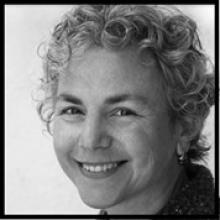
Ellen Bass is a Chancellor of the Academy of American Poets and winner of a 2021 Guggenhiem Foundation Fellowship in Poetry . Her books include Indigo , named a New and Notable book by the New York Times and Like a Beggar, The Human Line , and Mules of Love . In 1973 Ellen co-edited the first major anthology of women's poetry, No More Masks! and her non-fiction books include the groundbreaking guidebook, The Courage to Heal: A Guide for Women Survivors of Child Sexual Abuse and Free Your Mind: The Book for Gay, Lesbian and Bi-Sexual Youth .
Among her awards are Fellowships from the NEA and the California Arts Council, three Pushcart Prizes, Nimrod's Pablo Neruda Prize, The Missouri Review's Larry Levis Prize, New Letters Poetry Prize, Greensboro Poetry Prize, and The Glenna Luschei Prairie Schooner Award. Her work appears regularly in The New Yorker , The American Poetry Review and many other journals.
Ellen founded poetry workshops at Salinas Valley State Prison and in the Santa Cruz jails. She lives with her wife in Santa Cruz, CA. Visit her website .
Thoughts on Workshop : The workshop is an opportunity to share your poems and to hear how others respond to them. But equally—if not more important—it’s an opportunity to learn from the feedback given to other students. It can be hard to escape the subjectivity we feel about our own poems, but as you develop your ability to recognize the strengths and weaknesses of poems that are not yours, then you can apply that discernment to your own poems.

Sanjiv Bhattacharya is presently the U.S. Correspondent for Esquire (UK), and a general freelancer for various titles in both countries, such as The Telegraph , The Guardian , The Observer , Details, Marie Claire, and a handful of others.
He's been twice nominated for PPA Consumer Magazine Writer of the Year for his work in Esquire – in 2017, 2015 and 2013.
He grew up in London, studied at Cambridge, and spent five years at GQ (UK). He then turned to freelance and moved to Los Angeles to spend the next nine years writing features about all kinds of things, especially celebrities, subcultures, and fringe groups.
In 2005, he made a documentary about Mormon polygamy, which led to a book on the topic, Secrets & Wives: The Hidden World of Mormon Polygamy , which came out in 2011.
In 2008 he went to India for a couple of years to edit men’s lifestyle magazines, first GQ India in Bombay and then a few other titles at the India Today Group in Delhi.
Now he is back in LA, working on more books and articles.

Leila Chatti is a Tunisian-American poet and author of Deluge (Copper Canyon Press, 2020), winner of the 2021 Levis Reading Prize, the 2021 Luschei Prize for African Poetry, and longlisted for the 2021 PEN Open Book Award, and four chapbooks. Her honors include multiple Pushcart Prizes, grants from the Barbara Deming Memorial Fund and the Helene Wurlitzer Foundation, and fellowships from the National Endowment for the Arts, the Fine Arts Work Center in Provincetown, the Wisconsin Institute for Creative Writing, and Cleveland State University, where she was the inaugural Anisfield-Wolf Fellow in Publishing and Writing. Her poems appear in The New York Times Magazine, The Nation, The Atlantic, POETRY, and elsewhere. She is a Provost Fellow at the University of Cincinnati.

Dr. Adrienne Christian is a poet, writer, professor, and photographer. Her poetry books include Worn (2021, Santa Fe Writer's Project) and A Proper Lover (2017, Main Street Rag). Worn was one of The Rumpus’ Most Anticipated Books of 2021. Her poetry, prose, and photographs have appeared in Prairie Schooner , Hayden’s Ferry Review , CALYX , BUST , phoebe , No Tokens , World Literature Today , American Life in Poetry , Today’s Black Woman , African Vibes , the Los Angeles Review as the Editor’s Choice , Next Avenue , and more.
She is a two-time Pushcart Prize nominee. Her poem, Wedding Dress , received the 2021 Common Ground Review Poetry Award. In 2016, she was nominated for the Rita Dove International Poetry Award. In 2007, she won the University of Michigan’s Five Under Ten Young Alumni Award.
Adrienne is a fellow of the Cave Canem, Furious Flower, and Callaloo writing residencies. She has served as editor or jury member for literary prizes including the Lucille Clifton Poetry Prize, the Penumbra Poetry and Haiku Contest, the Cave Canem Starshine and Clay Fellowship, and the Nebraska Poetry Society Poetry Award. She is also Associate Editor at Backbone Press.
Adrienne has been featured on panels by Ms. Magazine and the Association of Writers and Writing Programs. She holds a BA from the University of Michigan, an MFA from Pacific University, and a PhD from the University of Nebraska. She teaches in the Low-Residency MFA Program at Pacific University.
When Adrienne is not working, she is photographing the world. She has visited all 50 US states, all seven continents, and 65 of the world’s countries/territories. Read all about her adventures and see her travel photography at adriennechristian.substack.com . Though she was born and raised in Michigan, Adrienne now lives in San Antonio, Texas with her husband.

Eduardo C. Corral's poems have appeared in Best American Poetry 2012, New England Review, Ploughshares, and The New York Times. His work has been honored with a Discovery/The Nation Award, the J. Howard and Barbara M. J. Wood Prize from Poetry , and writing residencies to the MacDowell Colony and Yaddo. He has served as the Olive B. O'Connor Fellow in Creative Writing at Colgate University, and as the Philip Roth Resident in Creative Writing at Bucknell University. Slow Lightning, his first book of poems, was selected by Carl Phillips as the 2011 winner of the Yale Series of Younger Poets competition. He's the recipient of a Whiting Writers' Award and a National Endowment for the Arts Fellowship. In 2016 he won the Holmes National Poetry Prize from Princeton University.

Claire Davis’s first novel, Winter Range, was listed among the best books of 2000 by The Washington Post, Chicago Sun Times , The Denver Post , Seattle Post, The Oregonian, and The Christian Science Monitor , and was the first book to receive both the PNBA and MPBA awards for best fiction. Her second novel, Season of the Snake , and her short story collection, Labors of the Heart, were both released to wide critical acclaim. Her stories and essays have appeared in numerous literary magazines such as The Gettysburg Review , Shenandoah , The Southern Review , The Pushcart Prize Anthology , and Best American Short Stories . She recently retired as Professor Emerita from Lewis-Clark State College in Idaho and is currently teaching at the University of Wisconsin Milwaukee.

Kwame Dawes is the author of twenty-one books of poetry and numerous other books of fiction, criticism, and essays. His most recent poetry collection, Nebraska , appeared in 2019. In 2016 his book, Speak from Here to There , a co-written collection of verse with Australian poet, John Kinsella, appeared along with When the Rewards Can Be So Great: Essays on Writing and the Writing Life , which he edited. His collection, City of Bones: A Testament , appeared in 2017. Also in 2017, Dawes co-edited with Matthew Shenoda, Bearden’s Odessey: Poets Responding to the Art of Romare Bearden . His awards include the Forward Poetry Prize, The Hollis Summers Poetry Prize, The Musgrave Silver Medal, several Pushcart Prizes, the Barnes and Nobles Writers for Writers Award, and an Emmy. He is Glenna Luschei Editor of Prairie Schooner and is Chancellor Professor of English at the University of Nebraska. Dawes serves as the Associate Poetry Editor for Peepal Tree Books and is Director of the African Poetry Book Fund. He is Series Editor of the African Poetry Book Series and Artistic Director of the Calabash International Literary Festival. In 2018, he was elected a Chancellor of the Academy of American Poets and a Fellow of the Royal Society of Literature. Dawes was recently named as a finalist for the 2022 Neustadt International Prize for Literature. He was also the editor of American Life in Poetry .
Photo by Rachel Eliza Griffith
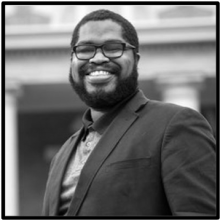
Tyree Daye was raised in Youngsville, North Carolina. He is the author of the poetry collections a little bump in the earth (Copper Canyon Press, 2024), Cardinal (Copper Canyon Press, 2020), and River Hymns (American Poetry Review, 2017), winner of the APR/Honickman First Book Prize. A Cave Canem fellow and a Palm Beach Poetry Festival Langston Hughes Fellow, Daye is the recipient of a Whiting Writers Award, a Kate Tufts Award finalist, and a 2021 Paterson Prize finalist. He was the 2019 Diana and Simon Raab Writer-In-Residence at the University of California, Santa Barbara, and received an Amy Clampitt Residency. Daye is an Assistant Professor at the University of North Carolina, Chapel Hill. In January 2023, Daye served as Guest Editor of the Poem-a-Day series.

Siddhartha Deb is the author of two novels and The Beautiful and the Damned , a work of narrative nonfiction which was a finalist for the Orwell Prize and a recipient of the Pen Open award. The Light at the End of the World , his latest novel, is forthcoming in Spring 2023. His journalism, fiction, and essays have appeared in The New York Times , The New Republic , The Guardian , The Nation , The Baffler , and n+1 . A professor of creative writing at the New School, he is the recipient of fellowships from the Radcliffe Institute and the Howard Foundation.

Jack Driscoll is the author of four books of poems, three collections of short stories, and four novels. In addition, he is the recipient of numerous grants and awards, including two NEA Creative Writing Fellowships, the NEH Independent Study Grant, two Pushcart Prizes and Best American Short Story citations, the PEN/Nelson Algren Fiction Award, the Associated Writing Programs Short Fiction Award, and seven PEN Syndicated Project Short Fiction Awards.
His work has appeared in magazines, literary journals, and newspapers such as Chicago Tribune , Kansas City Star , Civilization , Poetry , The Georgia Review , The Southern Review , and Ploughshares .
His novel, Lucky Man, Lucky Woman, received the 1998 Pushcart Editors’ Book Award, the Barnes and Noble Discovery of Great New Writers Award, and the 1999 Independent Book Publishers Award for Fiction. His newest short story collection, The Goat Fish And The Lover's Knot , was published in 2017. Twenty Stories , a selection of his stories from over the years, was published by Pushcart in late 2022.

Pete Fromm is a five-time winner of the Pacific Northwest Booksellers Literary Award for his novels If Not for This , As Cool As I Am , and How All This Started ; a story collection, Dry Rain ; and the memoirs, Indian Creek Chronicles and The Names of the Stars , which won the Evans Handcart Award for excellence in biography and a Montana Book Award. As Cool As I Am is also a feature film starring Claire Danes, James Marsden, and Sarah Bolger, and Dry Rain is a short film starring James LeGros and Nathan Gamble. Pete is the author of four other short story collections and has published over two hundred stories in magazines. His most recent novels, A Job You Mostly Won’t Know How To Do (2019), and Lake Nowhere (Le Lac De Nulle Part, 2022), are both bestsellers in France. He lives in Montana and speaks regularly at writer’s conferences around the country and in Europe. Thoughts on Workshop: The workshop is a safe place to talk about how to improve not just this handful of stories, but all of our writing in general, learning the very difficult task of self-editing and revising your own work through the slightly less difficult task of putting another’s work under the microscope and figuring out what makes it tick, what works, and what doesn’t. I will treat your stories exactly as I treat my own, looking for everything I can work on more, improve, cut, add, clean up, and, more than that, I’ll pick up on things I see that can expand beyond the story to the group. And I’ll ask for you to do the same. The more seriously you take the stories that aren’t yours, the more seriously and competently you’ll begin to see your own work. So, in advance of workshop, really read these stories, mark them up, see what leads to their joys and what may have caused spots that didn’t quite work for you. In the margins, your comments will mostly be on the sentence level, but then go deeper with end notes on the story as whole. Those end notes are like a letter to the author articulating what you find most essential, interesting, and effective about the manuscript, as well as any questions or suggestions you have about how the author might improve it. If you write these carefully, they’ll teach you as much about fiction writing as they teach the author about their manuscript; they also help build lasting friendships between you and your MFA peers. I’ve always told my workshops that anything aggressive or demeaning or counterproductive would not be tolerated, warned that I’d come down with the wrath of avenging angels on any such behavior, yet, in my many years in this program, I’ve never once had to do any such thing. I think you’ll find yourself in a safe, welcoming, sincere group of fellow writers, all of us just trying to improve our writing. We’re in this together, taking the writing seriously, but maybe ourselves a bit less so. Being willing to relax and laugh at ourselves sometimes is a great help.
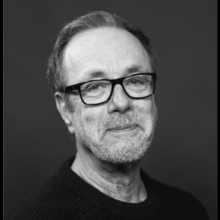
Frank X. Gaspar was born and raised in Provincetown, Massachusetts, of Azorean Descent (Pico, Sao Miguel). His ancestors were traditionally whalers and Grand Banks fisherman, sailing out of the Islands and then Provincetown. He is the author of five collections of poetry and two novels. Among his many awards are multiple inclusions in Best American Poetry, four Pushcart Prizes, a National Endowment for the Arts Fellowship in Literature, and a California Arts Council Fellowship in poetry. His debut novel, Leaving Pico , was a Barnes and Noble Discovery Prize winner, a recipient of the California Book Award for First Fiction, and a New York Times Notable Book. His second novel, Stealing Fatima, was a MassBook of the Year in Fiction (Massachusetts Foundation for the Book). His latest book, a fusion of genres, is The Poems of Renata Ferreira.

Molly Gloss is the author of six novels and a short story collection. Her novels include The Jump-Off Creek , which was a finalist for the PEN/Faulkner Award; The Dazzle of Day , winner of the PEN West Fiction Prize; and the national bestseller The Hearts of Horses . Her story collection, Unforeseen , was a finalist for the World Fantasy Award in 2020.
Other honors include a Whiting Writers Award, an Oregon Book Award, multiple Pacific Northwest Booksellers Awards, the James Tiptree Jr. Award, and the Theodore Sturgeon Award for the short story.
She writes both realist fiction and science fiction. Her work, even within the science fiction/fantasy genre, often concerns or reimagines the landscape, literature, mythology, and history of the American West.
Thoughts on Workshop: Writing is ultimately a solitary art, but workshops are where we come together to collaborate, as musicians and dancers do, to offer mutual encouragement, stimulating discussion, practice in criticism, and support in difficulty. To help a story draw closer to what the writer intended, we ask: What is this writer doing, how is she doing it, why is he doing it, what is their story about? One of the most valuable tools for honing our own craft, is this practice of articulating answers to questions about another writer’s work.

Cate Kennedy is an Australian writer who has published two short story collections, a novel, three poetry collections, and a memoir. Her stories have appeared in many publications including The New Yorker , the Harvard Literary Review , World Literature Today , and Prospect magazine, as well as numerous Australian literary journals and periodicals including Best Australian Stories in 2006, 2007 and 2009. Her debut collection, Dark Roots , was given a starred review upon its U.S. publication in Publishers Weekly and the Kirkus Reviews , and was chosen as a Barnes and Noble Great New Writers selection for 2008 and as Oprah magazine’s "new voice of the month" in July of that year. She is the recipient of the Queensland Literary Award for her most recent collection, Like a House on Fire , and the Victorian Premier’s Literary Award for her 2011 poetry collection, The Taste of River Water . Her novel, The World Beneath , was awarded the People’s Choice prize in the NSW Literary awards in 2010, and has been translated into French and Mandarin. In 2021 she completed her PhD dissertation and was awarded a Doctor of Philosophy degree at LaTrobe University, Melbourne. Her short story collections are both on the English syllabus in her home state of Victoria in Australia.
Thoughts on Workshop: All I can think of to say is to echo the master, Anton Chekhov, when he said: "I still lack a political, religious, and philosophical world view. I change it every month, so I'll have to limit myself to the description of how my heroes love, marry, give birth, die, and how they speak."
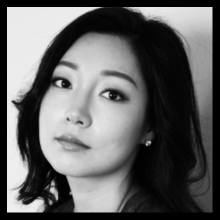
E. J. Koh is the author of the memoir The Magical Language of Others (Tin House Books, 2020) and poetry collection A Lesser Love (Louisiana State University Press, 2017), winner of the Pleiades Press Editors Prize for Poetry. Her co-translation of Yi Won’s The World’s Lightest Motorcycle is forthcoming from Zephyr Press. Her stories, poems and translations have appeared in Boston Review , Los Angeles Review of Books , Slate , and World Literature Today . Koh is the recipient of fellowships from the American Literary Translators Association, Kundiman, and MacDowell. Koh earned her MFA at Columbia University in New York for creative writing and literary translation. She is completing her PhD at the University of Washington in Seattle. The Magical Language of Others was recently named the 2021 winner of the Pacific Northwest Book Award.

Valerie Laken's short story collection, Separate Kingdoms , was longlisted for the Story Prize and the Frank O'Connor International Short Story Award. Her novel, Dream House , received the Anne Powers prize for fiction and was listed among Kirkus Reviews' Best Books of 2009. Her work has been published in numerous journals, including Ploughshares, Chicago Tribune, and Alaska Quarterly Review , and has received a Pushcart Prize and a Missouri Review Editors' Prize. She holds an MA in Slavic literature and an MFA in Creative Writing from the University of Michigan, and she teaches in the graduate program for creative writing at the University of Wisconsin-Milwaukee.
Thoughts on Workshop: My goal in workshop is to foster a supportive community where writers feel safe sharing complex, imperfect work, and where readers are dedicated to helping their peers discover the best ways to advance and refine that work. We learn and show respect by taking one another’s work seriously and offering generous, thoughtful reactions rather than formulaic instructions. In my workshops, the author is free to ask questions, express their intentions for their work, and redirect the discussion. Our goal, as a group, is not to impose our values or aesthetic on someone else’s work, but to help each author discover and build on what is most unique and essential in their voice.
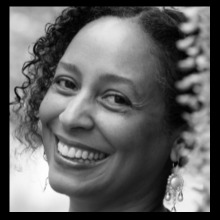
Danusha Laméris is an American poet, raised in Northern California, born to a Dutch father and Barbadian mother. Her first book, The Moons of August (Autumn House, 2014), was chosen by Naomi Shihab Nye as the winner of the Autumn House Press Poetry Prize and was a finalist for the Milt Kessler Award. Her most recent collection, Bonfire Opera , (University of Pittsburgh Press, Pitt Poetry Series, 2020), recently won the 2021 Northern California Book Award in Poetry and was a finalist for the 2021 Paterson Poetry Award. Some of her work has been published in The Best American Poetry , The New York Times , The American Poetry Review , The Gettysburg Review , Prairie Schooner , Ploughshares , and Orion . The recipient of the 2020 Lucille Clifton Legacy Award, Danusha has taught poetry independently since 2006. She founded The Hive Poetry Collective, a radio show, podcast and event hub in Santa Cruz, CA, where she was the 2018-2020 Poet Laureate. She is currently at work on a collection of nature essays.
Thoughts on Workshop: We are gathered here because we love poems and poetry. And that matters. It matters that we truly love what language can do, and love transmitting it to others.
Poetry is about taking in the world, the whole experience of being human, and distilling that experience down to something that can be taken in and re-experienced by another person.
Craft-wise, we grow from reading great poems—and also from taking risks. Which means we need an environment of support and encouragement. It’s vulnerable to take risks.
Every poet can learn to write stronger poems. It’s about craft, and dedication. Not just some amorphous and innate thing like talent.

Dorianne Laux's newest poetry collection, Only As The Day Is Long: New and Selected Poems (W.W. Norton, 2019) was selected as a finalist for the 2020 Pulitzer Prize in Poetry. She is also the author of The Book of Men ( winner of the Paterson Prize ) , Facts about the Moon ( winner of the Oregon Book Award), as well as two collections of poetry from BOA Editions: Awake : What We Carry (finalist for the National Book Critics Circle Award), and Smoke . She is co-author of The Poet's Companion: A Guide to the Pleasures of Writing Poetry . Her work has been translated into many languages and has appeared in The Norton Anthology of Contemporary Poetry and in The Best American Poetry four times. She has been awarded a Pushcart Prize, two fellowships from The National Endowment for the Arts, and a Guggenheim Fellowship. Laux was elected Chancellor of the Academy of American Poets in 2020.
Thoughts on Workshop: Our workshops are a place to present fresh work and receive feedback from a group of peers guided by your teacher. We value specific, concise, considered comments on thematics and craft. The aim is to give the poet useful information with which to continue their work. I encourage a supportive and friendly atmosphere where we feel welcomed, comfortable, and included, all of us working together for the benefit and betterment of each presented poem.

Mike Magnuson is the author of two novels, The Right Man for the Job and The Fire Gospels ; and three books of nonfiction, Lummox: The Evolution of a Man, Heft on Wheels: A Field Guide to Doing a 180 , and Bike Tribes . His short fiction and nonfiction have appeared in Esquire, Gentleman’s Quarterly, Men’s Health, Backpacker, Bicycling, Salon, Popular Mechanics, The Massachusetts Review, The Big Smoke, Best American Sports Writing, and other publications. Recently, he has completed a biography of legendary orchestral conductor Harry Rabinowitz, and he is working on a novel about an underground newspaper in Ghent, Belgium, at the time of the 1944 Tour of Flanders bicycle race. Mike lives on the north shore of Lake Winnebago, in Menasha, Wisconsin. Visit his website .
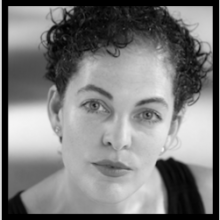
From Jamaica, and born to a Jamaican father and Venezuelan mother, Shara McCallum is the author of six books of poetry published in the US and UK, most recently No Ruined Stone (2021), which won the 2022 Hurston/Wright Legacy award and named a finalist for the 2022 UNT Rilke Prize. La historia es un cuarto , an anthology of her poems translated into Spanish by Adalber Salas Hernández, was published in Mexico in 2021. McCallum’s poems have been translated into several other languages and her poems and essays have appeared throughout the US, Caribbean, Latin America, Europe, and Asia. Her writing has been awarded various prizes, including the OCM Bocas Prize for Caribbean Poetry, a Silver Musgrave Medal from the Jamaican government, a Witter Bynner Fellowship from the US Library of Congress, and a National Endowment for the Arts Poetry Fellowship. McCallum is an Edwin Erle Sparks Professor at Penn State University and was appointed the 2021-22 Penn State Laureate.
Thoughts on Workshop: Each workshop is a unique community we form, as practitioners with various subjectivities, brought together through our shared investment in the art and craft of poetry. To reflect this, in our discussions of poems I discourage consensus, unless this happens organically. Instead, I encourage the voicing of a multiplicity of—sometimes contradictory—readings and responses. Central to my idea of workshop is the belief that poems aren’t broken. We aren’t there to “fix” a poem or “torture a confession out of it.” When invited by a poet into their process, I think we serve and honor both the poet and the poem by reading closely, with a keen focus on identifying the poem’s effect and resonances as well as its aspirations and possibilities.

Joseph Millar’s collections are Kingdom , Overtime , a finalist for the Oregon Book Award, Fortune , and Blue Rust (all available from Carnegie-Mellon). His most recent collection, Dark Harvest: New and Selected Poems, 2001-2020 , was released in October, 2021. Millar grew up in Pennsylvania, attended the Johns Hopkins Writing Seminars and spent 30 years in the San Francisco Bay area working at a variety of jobs, from telephone repairman to commercial fisherman. His poems record the narrative of a life fully lived among fathers, sons, brothers, daughters, weddings and divorces, men and women. His work has won fellowships from the John Simon Guggenheim Foundation, the National Endowment for the Arts, a Pushcart Prize, and has appeared in such magazines as DoubleTake, New Letters, Shenandoah, TriQuarterly, The Southern Review, The American Poetry Review, and Ploughshares.

Mahtem Shiferraw is a writer and visual artist from Ethiopia and Eritrea. Her work has been published in various literary magazines, including Callaloo , Prairie Schooner , Poets.org, The 2River View , Luna Luna Magazine , Diverse Voices Quarterly , Numero Cinq , and more. Her short story "The River" received an Honorable Mention at Glimmer Train ’s Open Fiction Contest. In 2016, she won the Sillerman Prize for African Poets and her full-length collection, Fuchsia , was published by the University of Nebraska Press. Her poetry chapbook, Behind Walls & Glass , was published by Finishing Line Press. Her most recent collection, Your Body is War , is out now from the University of Nebraska Press. She has served as editor for Atlas and Alice , The Bleeding Lion , The Hunger Mountain , and more. She is the founder of Anaphora Arts , a nonprofit organization working to advance the works of writers and artists of color. She has served as a jury member for different literary prizes and residencies, including the Neudstat International Prize for Literature, the Brunel International African Poetry Prize, the Lucy Munro Brooker Prize, and more. She is a Pushcart prize nominee, and her work has been anthologized widely. In 2018, she received the Imani Award for Artistic Excellence from Harvard University. As of 2020, she also serves on the Editorial Board of World Literature Today . She holds an MFA from Vermont College. Her next poetry collection, Nomenclatures of Invisibility , will be published by BOA Editions, Ltd. in Spring, 2023.
Thoughts on Workshop: The workshop is a space for thoughtful discourse and discernment; we are here to learn about craft, but also to mitigate our differences, to elevate one another in our storytelling, in our common purpose. The workshop also provides an opportunity to understand new perspectives, to deepen our empathy, and to move forward with compassion.

Mary Helen Stefaniak’s fiction and nonfiction have appeared in many publications. Of her new novel, The World of Pondside , a mystery that takes place in a nursing home, Booklist said, “Stefaniak infuses an often forbidding and depressing environment with joy and dignity.” Her second novel, The Cailiffs of Baghdad , Georgia, received a 2011 Anisfield-Wolf Book Award for Fiction. Anisfield-Wolf Awards recognize books that make significant contributions to our understanding of racism and our appreciation of the diversity of cultures. Independent booksellers selected The Cailiffs as an Indie-Next “Great Read.” Her first novel, The Turk and My Mother , received the 2005 John Gardner Fiction Award and has been translated into several languages. It was named a Favorite Book of 2004 by the Chicago Tribune . Self Storage and Other Stories , her first book, received the Wisconsin Library Association’s 1998 Banta Award. The University of Iowa Press published her first book of nonfiction, The Six-Minute Memoir: Fifty-Five Short Essays on Life , in 2022, its essays selected from a column she began writing in 1998. Mary Helen is Professor Emerita of Creative Writing at Creighton University in Omaha. She has taught fiction writing in Ireland, in China, and in the Iowa Summer Writing Festival. She and her husband have lived in Iowa City since 1982. Their three remarkable children grew up there.
Thoughts on Workshop: The job of your colleagues in workshop is to read your pages carefully and respectfully and to let you know what they see, hear, smell, taste, feel, understand and/or fail to understand on those pages. It is a truism (and also, as it happens, a fact) that you will learn more from participating in the discussion of other people’s work than you learn from the discussion of your own. You’re going to get many wrong ideas from your readers, but they will often lead you to the right ideas. A successful workshop is one that makes you, the writer, eager to dive back into the writing—whether to revise or to start anew. A really great workshop makes everyone else in the room feel the same.

Willy Vlautin has published six novels: The Motel Life (2007), which was The New York Times Editors’ Choice and Notable book, and was made into a major motion picture starring Dakota Fanning, Emile Hirsch, Stephen Dorff, and Kris Kristofferson; Northline (2008); Lean on Pete (2010), which won the Ken Kesey Award for Fiction, was short-listed for the IMPAC award, and is soon to be a film starring Steve Buscemi and Chloe Sevigny; The Free (2014), winner of the Oregon People’s Choice Award; and Don't Skip Out On Me (2018). His latest novel, The Night Always Comes , was released in April, 2021. His work has been translated into eight languages.
Vlautin founded the bands Richmond Fontaine in 1994 and The Delines in 2014, featuring vocalist Amy Boone (The Damnations). He currently resides in Scappoose, Oregon.
Thoughts on Workshop: Workshop is an important part of the program, where students can learn to see their work from the diverse perspectives of their fellow students. Discussion and critique are valuable tools for honing our craft, and workshop should be a place where all students feel safe to share their work. Students should come to it with open minds, ears, and hearts. My goal is for students to be inspired and motivated by the discussions we have in workshop.

Kellie Wells is the winner of the 2022 Kurt Vonnegut Speculative Fiction Prize. She is also the recipient of the Flannery O’Connor Award, the Richard Sullivan Prize, the Great Lakes Colleges Association New Writers Award for Fiction, the Rona Jaffe Foundation Writer’s Award for emerging women writers, and the Baltic Writing Residency. She has been awarded residencies at the MacDowell Colony, Hedgebrook, Blue Mountain Center, Château de Lavigny, and Hawthornden Castle. She is the author of four books: Compression Scars ; Skin ; Fat Girl, Terrestrial ; and God, the Moon, and Other Megafauna . Her research and writing interests include Victorian spiritualism and stage acts, dystopian/apocalypse lit, speculative/fabulist/slipstream lit, disability and chronic illness in the Anthropocene/Symbiocene, fairy tales and folktales, and apocalyptic crones. She has three very wry dogs, teaches in the MFA program at the University of Alabama, and is a congenital Midwestern American.
Thoughts on Workshop: My approach to feedback and workshop discussion is, in large part, descriptive. In the course of the conversation and in my written comments, I illustrate for the writer how one reader has made sense of their work, point out the things I leaned on interpretively, and try to show the writer what led me to the reading I came away with. I describe how I see various craft elements operating and also offer general observations about the form the writer’s working in. Although I occasionally make pointed suggestions for revision, I’m generally not inclined to offer prescriptive feedback. Instead, I document one reader’s experience of the story/chapter, and the writer can think about how that experience does or does not align with their intentions (or what they know of their intentions at this moment), so that when they return to the work, they can make decisions about how to reimagine the parts of it they want to revise or how to move forward. It’s not that I think prescriptive feedback has no value; it’s just that my inclination as a reader is to go with the choices the writer has made and then think about how those choices accumulate into meaning for me as I read. Just as we all write differently, all members of a workshop have different dispositions as readers and critics, so I don’t expect fellow workshop members to respond to the work exactly as I do. However workshop members are inclined to engage with the work critically, so long as it’s respectful, is fine. The more variety there is in the way we read and analyze, the better for the writer. This is, to my way of thinking, one of the real virtues of a workshop—it can give the writer a prismatic view of their own work that will illuminate it in unexpected ways, throwing onto the wall patterns they might not even have realized were there.

Cecily Wong is the author of three books. Her debut novel, Diamond Head (Harper), was a Barnes and Noble Discover Great New Writers Selection, recipient of an Elle Readers' Prize, and voted a best debut of the 2015 Brooklyn Book Festival. Her second novel, Kaleidoscope (Dutton), was a best book of the month at Buzzfeed, Apple Books, and Today.com. Cecily is also the co-author of the New York Times bestseller Gastro Obscura: An Explorer’s Guide to Food (Workman Publishing). Cecily’s work has appeared in the Wall Street Journal , The LA Review of Books , Self Magazine , Bustle , Atlas Obscura , and elsewhere. She is the 2023 recipient of an Oregon Literary Fellowship. A graduate of Barnard College, Cecily now lives in Portland, Oregon with her husband and daughter.

Kao Kalia Yang is a Hmong-American writer. She is the author of the memoirs The Latehomecomer: A Hmong Family Memoir , The Song Poet , and Somewhere in the Unknown World . Yang is also the author of the children’s books A Map Into the World , The Shared Room , The Most Beautiful Thing , and Yang Warriors . She co-edited the ground-breaking collection What God is Honored Here?: Writings on Miscarriage and Infant Loss By and For Native Women and Women of Color . Yang’s work has been recognized by the National Endowment for the Arts, the National Book Critics Circle Award, the Chautauqua Prize, the PEN USA literary awards, the Dayton’s Literary Peace Prize, as Notable Books by the American Library Association, Kirkus Best Books of the Year, the Heartland Bookseller’s Award, and garnered four Minnesota Book Awards. Kao Kalia Yang lives in Minnesota with her family, and teaches and speaks across the nation.

IMAGES
VIDEO
COMMENTS
Scott Cairns, Director. Mailing Address: 3307 3rd Ave West, Suite 109, Seattle WA 98119. Location: Marston Hall (2nd Floor) 206-281-2727. [email protected]. Report an Accessibility Issue. SPU's MFA in Creative Writing offers a holistic, transformative experience. Explore your sense of vocation at Seattle Pacific University. Learn more.
Welcome to the MFA in Creative Writing program! This is a significant pursuit, and the SPU Library is here for you all along the way. Even though you are in a low-residency program, you have the same library access as our on-campus graduate students. On this guide, your MFA Librarian, Liz Gruchala-Gilbert, presents strategies for finding ...
Graduate Program Director Scott Cairns Program Director Low-Residency MFA 3307 Third Ave W, Suite 109 Seattle Washington, United States 98119 Email: [email protected]. The low-residency MFA at SPU is a creative writing program for apprentice writers--both Christians and those of other traditions--who not only want to pursue excellence in the craft of writing but also place their work within the ...
Seattle Pacific University; Subject Guides; Subjects; MFA in Creative Writing; MFA in Creative Writing. Browse our best resources, organized by subject. Toggle navigation. 46 SUBJECTS.
November 2016. Poet, memoirist, librettist, and essayist Scott Cairns is the new director of SPU's Master of Fine Arts in Creative Writing program. Since 2015, he has served as a faculty mentor in the low-residency MFA program. He has authored eight poetry collections, a collection of translations of Christian mystics, a spiritual memoir, a ...
Creative Writing ; About. The low-residency MFA at Seattle Pacific University is a Creative Writing program for apprentice writers—both Christians and those of other traditions—who not only want to pursue excellence in the craft of writing but also place their work within the larger context of the Judeo-Christian tradition of faith.
An exceptional low-residency writing program in the Pacific Northwest. Pacific University's Master of Fine Arts (MFA) in Writing program celebrates writing as an art that has the potential to make a difference in the world. Our MFA in Writing program offers a high level of craft and conversation, upheld by the good humor and care of a ...
This post is excerpted from Gregory Wolfe's final commencement address as director of the Seattle Pacific University Master of Fine Arts in Creative Writing last month. Wolfe, who founded the program, steps down as director today. Read his full announcement here. Once upon a time—well, seventeen years ago, to be exact—I was contacted by Mark…
Produced by the MFA Creative Writing program of Eastern Washington University, this journal accepts nonfiction submissions year-round and fiction and poetry submissions between September 1 and May 31. ... Seattle Pacific University. COLLEGE OF ARTS AND SCIENCES. Accreditation: NWCCU. Degree: Master - MFA. Private School. Creative Writing;
The SPU Library belongs to a consortium of 37 college and university libraries in Washington, Oregon, and Idaho called the Orbis Cascade Alliance. The name of the catalog for this consortium is Summit. The Summit Librar y members share their books, DVDs, CDs and other materials with each other, serving over 275,000 students.
Pacific Lutheran University 12180 Park Avenue South Tacoma, WA 98447-0003 ... Our MFA has other features that have made The Rainier Writing Workshop the Pacific Northwest's premier low-residency MFA in creative writing. ... with easy access to Seattle's urban culture. We are highly selective, and our alumni have generated a substantial ...
I have taught writing and literature courses in universities since 1980; I have published nine poetry collections, a prose memoir (translated into both Greek and Romanian), and a book-length ...
Seattle Pacific University Low Residency MFA. 577 likes · 4 were here. Our program is for apprentice writers who want to pursue excellence in the craft of writing and care about the relationship...
About Seattle Pacific University. About SPU; Mission, Core Themes, and Vision. Enduring Commitments The process to articulate our Enduring Commitments Give Now Our History. 1891-1919 1920-69 1970-90 1991-Now ...
The Master of Fine Arts in Creative Writing is a two year program offering a degree in either Poetry or Prose, and is a part of the English Department's Creative Writing Program. Founded in 1947 by Theodore Roethke, the Creative Writing Program's tradition of transformative workshops continues with our current faculty: David Bosworth, David ...
Seattle Pacific University; Subject Guides; MFA in Creative Writing Resources; Articles; Search this Guide Search. MFA in Creative Writing Resources. ... MFA Alumni Books at the SPU Library; Using the SPU Article Databases. The SPU Library provides access to millions of full text articles from magazines, newspapers, trade publications, and ...
News. SPU cuts programs, faculty cuts ties. Faculty and staff are left to mourn, reminisce about their time at SPU. Belle Privitera, Staff Writer. September 27, 2023. Seattle Pacific University communications professor William Purcell holds up his hand to show support for his students during a demonstration on Monday, Sept. 12, 2022, in Seattle.
Use the SPU Library catalog search boxes on the homepage to look for titles, authors, or keywords. When you get your results, you can sort and limit to narrow down to the materials that work best for you. Use the "request" feature to have one of our books pulled for you or for a book to be sent from another library to either SPU or a Summit library near you.
The writers who serve as faculty for Pacific University's MFA in writing graduate program are outstanding for both their level of national or regional literary achievements and for their teaching records and abilities. These accomplished authors share a sense of joy around their work, bringing their diverse writing styles and voices to the mix.